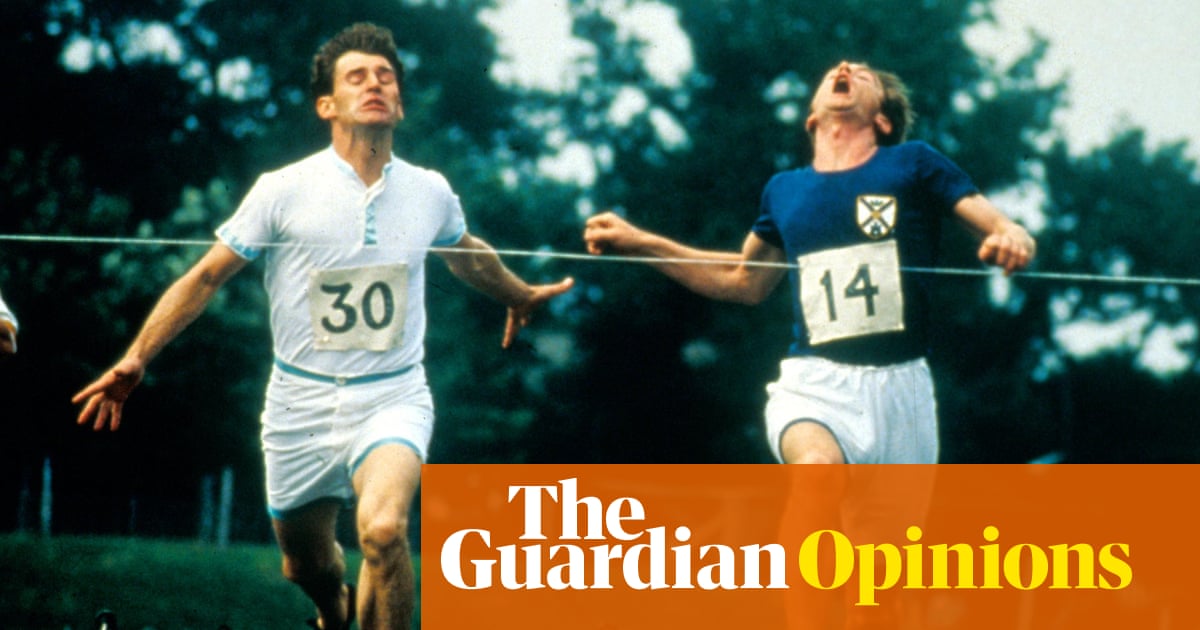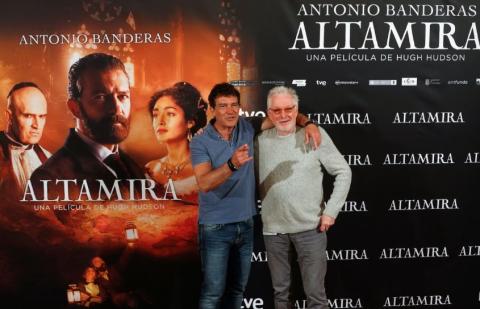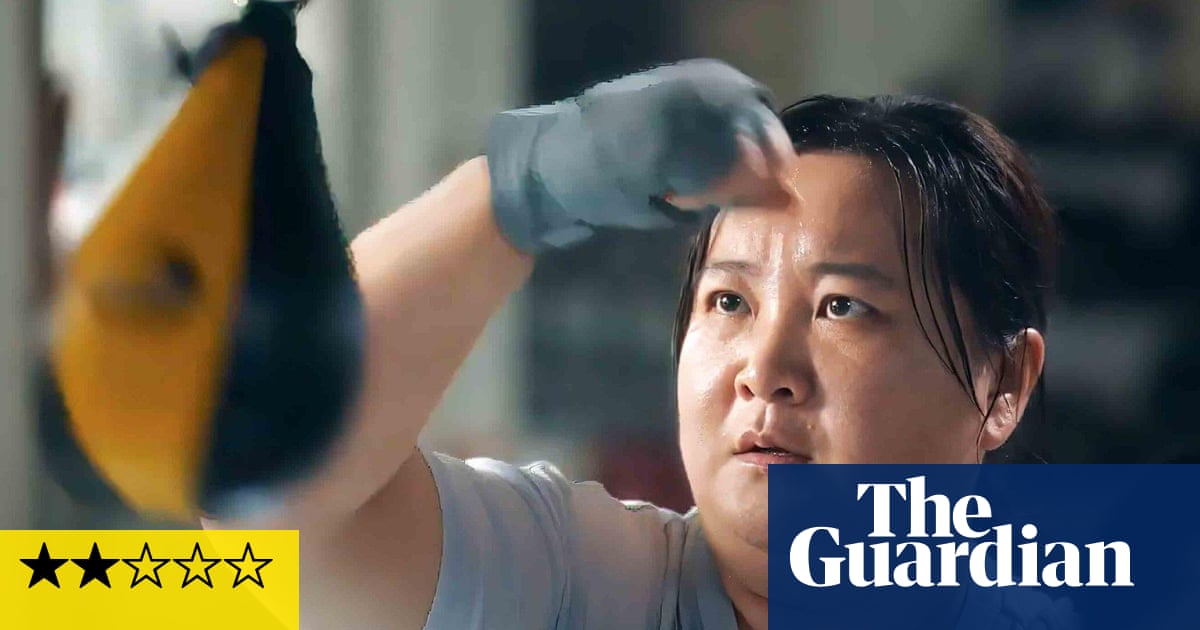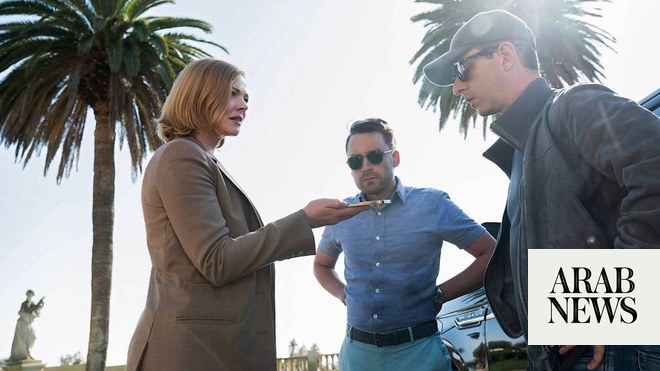
As the 1980s dawned, British ad director Hugh Hudson took on his first feature film and made it a legendary hit: an inspirational story which supplied a sugar-rush of patriotism and a swoon of nostalgia which hit the spot both sides of the Atlantic. It somehow brought off the trick of being about the underdog and the victim of bigotry and religious discrimination – and yet also being a resounding endorsement of the status quo which could, on grounds of decency and meritocracy, always accommodate the outsider. This was the era of Margaret Thatcher and Ronald Reagan, and the ethos of success for the hardworking and the deserving.
The film of course was Chariots of Fire, the true story of the 1924 Olympic runners Harold Abrahams (played by Ben Cross), a Jew who ran to defy prejudice, and Eric Liddell (Ian Charleson), a devout Christian who found a creationist glory in his speed. It was the destiny of so many involved to be forever associated chiefly, or solely, with this smash-hit pop classic: certainly Cross and Charleson never again found roles to match Abrahams and Liddell. And maybe Hudson himself never again had a triumph like it: though he was no one-hit wonder, later directing the Oscar-winning Tarzan drama Greystoke, and later Revolution, an epic about the American revolution starring Al Pacino which was derided but then grew in acclaim, giving his Hudson his own misunderstood masterpiece moment.
But it was Chariots of Fire which put Hudson at at the centre of an amazing nexus of creative forces and Zeitgeist currents: a receptive political culture, a stunningly catchy electronic score by Vangelis, a heartfelt, gripping script by Colin Welland (who supplied a further legend with his riproaring Oscar acceptance speech: “The British are coming!”), a shrewd financial package from producer David Puttnam, who commissioned the script, hired his friend Hudson and became (briefly) flavour of the month in Hollywood with Chariots’ success, And then there was help from two investors: Mohamed Fayed and his son Dodi Fayed. The latter got a producer credit and the film’s success boosted their wealth, pumped their prestige and intensified their addiction to all things British – and so Chariots arguably helped give us the fateful association of Dodi and Diana Spencer 16 years later.
But it was Hudson’s skill which brought Chariots to life: perhaps it was his adman’s training which shaped that film’s masterly early vignette: the Great Court Run, in which undergraduates try to run the perimeter of the Great Court of Trinity College Cambridge before the college clock finishes chiming twelve. The sheer simplicity of that idea captivated runners all over the world with its combination of an insouciant lark and a deadly serious challenge in a very picturesque-posh setting and continues to be an obsession with many; it was last achieved by a student in 2007. (The scene was in fact shot at Hudson’s alma mater, Eton.)
Hudson got open, candid, clear-eyed performances from Charleson and Cross as Liddell and Abrahams, the muscular Christian and the muscular Jew. Against their idealism, Hudson shrewdly positioned the more worldly and careworn persona of trainer Sam Mussabini, so beautifully played by Ian Holm. And then there were the frosty, snobbish and even bigoted college masters, played in cameo by Lindsay Anderson and John Gielgud: a droll double-act. The movie was a tricky dual narrative (Abrahams and Liddell do not, after all, run against each other in the big race and in fact have only a little interaction) but it was laid out by Hudson with enormous flair.
He was in fact very unusual among the admen like Ridley Scott and Alan Parker in that he did not give up commercials work once he’d graduated to movies, continuing to making miniaturist gems throughout the 80s, particularly one for British Airways, whose international prestige, particularly in the United States, was a part of the transatlantic ideological romance that Chariots had done so much to kickstart. He was also an industry legend for his hilarious Cinzano ads with Leonard Rossiter and Joan Collins, revealing a talent for comedy which didn’t surface in his movie work.
And then there was Hudson’s quixotic defiantly presidential-style party political ad for Neil Kinnock in the 1987 general election campaign, which took the emphasis away from tax and defence and towards Hollywood-style mood music for Kinnock the regular guy and family man. Tony Benn groaned that it made his “blood run cold” but it gave Labour’s poll numbers a boost. Not enough for victory, maybe, but New Labour panjandrums Philip Gould and Peter Mandelson saw the ad’s power, and the 1997 landslide was another cultural phenomenon in which Hudson played a subtle part.
Hudson always showed a great combination of artistry, commercial nous and storytelling verve. I myself got to know him just a little bit: some years ago, we served together on the jury for the Kraszna-Krausz Book awards (dedicated to photography and moving-image publishing) and he was a wonderful, sympathetic man – I found myself telling him at great length about my relationship with my dad. He is a hero of the British film industry.












